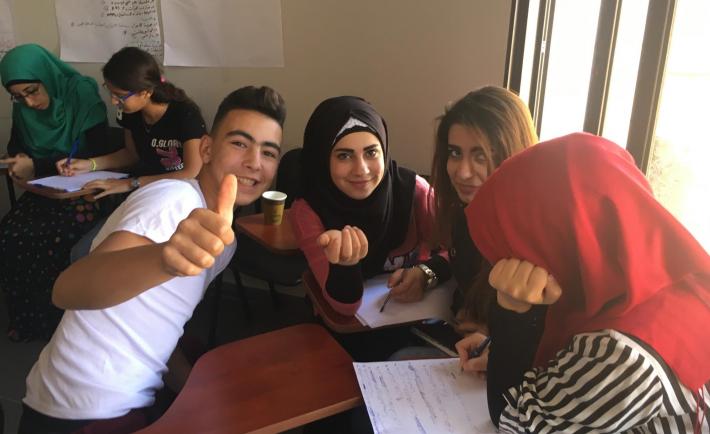In Lebanon, which is surrounded by countries in crisis, real power is held at the local level. The national government is trusted to protect borders and provide security, but it is the local municipality that largely provides basic services. Yet understanding how municipalities work is a challenge in Lebanon. Budgets are not made public and municipal websites are nonexistent, even in Beirut. Political parties hold power and corruption can be systemic. Youth in Lebanon do not have much opportunity in school to learn about democracy, the role of municipalities, or how they can be involved in governance. Determining how to have an impact can be difficult when the political system is so opaque. To help address this problem, NDI has been working for several years to empower youth and women to play a greater role in politics. The NDI team in Lebanon is working with local partners, such as NABAD, to provide basic training on how to impact political decisions at the municipal level. Hundreds of youth have already been trained and some have even run and been elected to office.
Lebanese Students Tackle Road Repair
Youth Want More Than a Seat at the Table
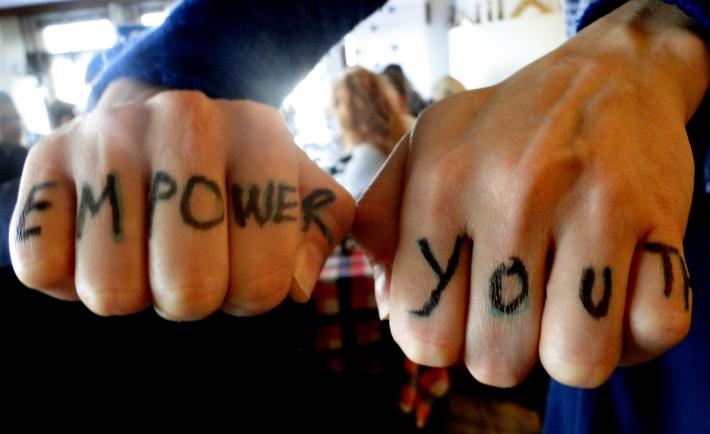
During an NDI workshop in Kosovo, a participant displays the message for a inter-ethnic advocacy campaign. Arta Qorri
International Youth Day 2016 comes at a time when the United Nations and other members of the international development community are recognizing youth as champions for sustainable development. This reflects an ongoing shift in perspectives from fearing the ‘youth bulge’ as a problem to be solved, to partnership with young women and men as leaders and a demographic dividend that can accelerate global progress. Today’s youth – the most connected, educated and open-minded generation the world has seen – have the power to foster innovative and transformative change.
Thinking Politically Means Thinking About Elections
.jpg)
Environmental activist from Macedonia talks with a voter about campaign to clean up pollution sites ahead of the 2013 mayoral elections.
Elections are often treated by donors and development practitioners as discrete events that require process-oriented support; like ensuring registration, campaigning, voting and vote counting standards are met. There has been much less emphasis on putting elections to work to advance the collective socio-economic interests of citizens. Financial or technical support to strengthen an election process may result in one that is more inclusive and fair, but even the most credible elections do not guarantee a government that will address citizen needs.
Recently, NDI undertook a review of programs that show how elections can advance the collective interests of citizens. We compiled lessons from NDI programs in Malawi, Macedonia and Turkey to demonstrate the value of taking advantage of election periods during strategic campaigns. Our new website, Putting Elections to Work for Accountability, compiles the findings of the review and features case studies of campaigns in Malawi, Macedonia and Turkey. The
Four New Resources on Thinking and Working Politically
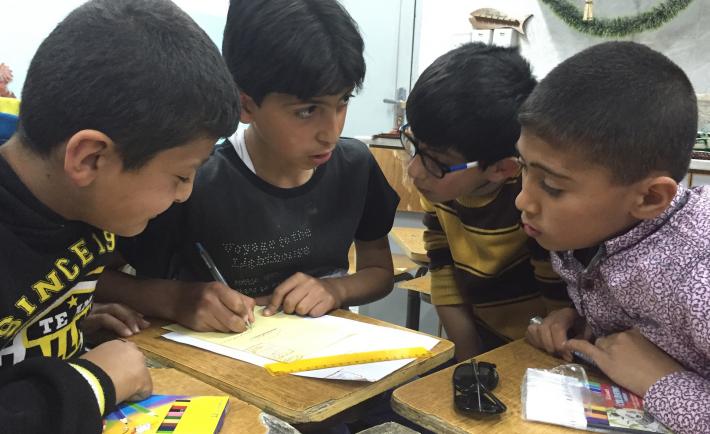
150 schools in Jordan are implementing NDI’s Youth Political Participation Program (Ana Usharek Schools) involving 3,053 students across Jordan. The program aims to promote civic education among students, involve them in projects serving their communities and introduce ways to effectively participate in political and public life. Photo Credit: Dareen Al-khoury
Each week NDI’s Citizen Participation team provides a resource to assist NDI staff in meeting the objectives of their programs. The past month’s resources discussed the need to better understand the thinking and working politically (TWP) framework in development programming, described the importance of integrating politics into development efforts to improve service delivery for poor populations, introduced a research and advocacy framework to support community organizing, and shared effective strategies to improve social accountability approaches. These resources provide tools and insights that can equip citizens and civil society with politically informed approaches to achieve better development outcomes and facilitate positive change.
Four New Resources for Citizen-led Accountability and Inclusive Change
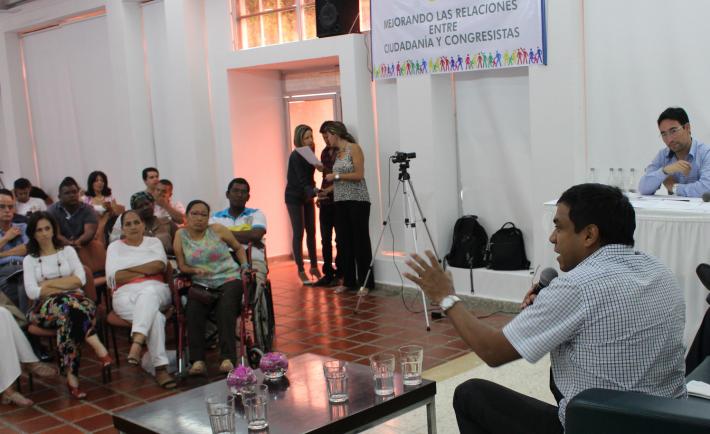
Citizens and congressmen meet in the department of Bolivar, Colombia to discuss issues and improving relations.
Each week NDI’s Citizen Participation team provides a resource to assist NDI staff in meeting the objectives of their programs. This past month's resources described the need for integrative strategies for citizen-led accountability, outlined an assessment framework to identify government accountability gaps, introduced a learning and advocacy framework for disability-inclusive development, and convened resources on cross-sectoral and evidence-based approaches to positive youth development. These resources provide tools and insights that can help citizens and civil society strengthen their ability to increase government accountability and bring about inclusive developmental change.
Grassroots Youth Spark Change in Kosovo
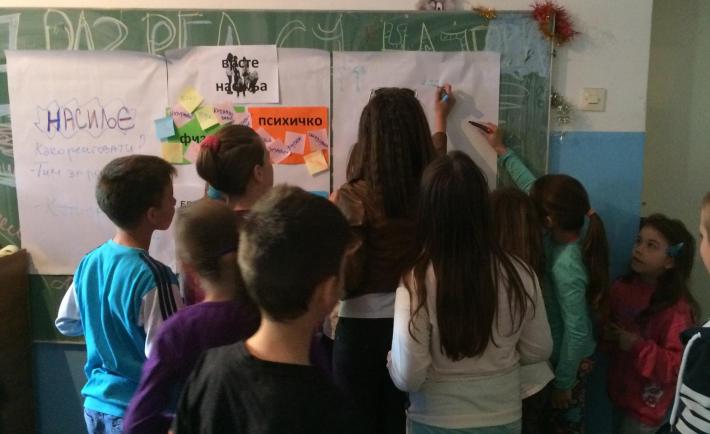
Students in Zvecan, Kosovo, brainstorm ways to stop school bullying, as part of a community initiative started by YLP participants.
Vladimir had not crossed the Mitrovica bridge -- which divides ethnic Serb communities north of the Ibar River from ethnic Albanians to the south -- in three years. But in February last year, Vladimir had a reason to cross the bridge and travel south: the opportunity to attend an NDI training in Gracanica with 19 other minority youth leaders and become a stronger advocate for issues in his community. Vladimir and his colleagues are members of the most recent generation of NDI’s Youth Leadership Program.
From Election Observation to Government Oversight: What’s Next for Guatemala?
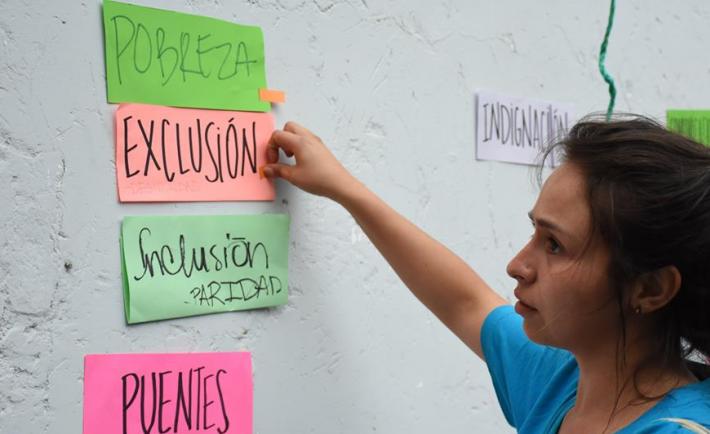
A young Guatemalan woman participates in an activity organized by civil society to reflect on the political crisis and future priorities. Credit: Pamela Saravia
As this blog series has highlighted, the 2015 Guatemalan elections were unique in many regards. Citizen protests resulted in the resignation and arrest of the president and vice president on corruption charges. Voter turnout was the highest since the return to democracy in Guatemala. The presumptive winner, the runner-up in elections four years earlier who was leading in the polls, failed to make it to the second round. And electoral violence was lower than expected and lower than during recent electoral processes. The question then becomes, what’s next for Guatemala?
Nepal Civil Society Monitors Earthquake Reconstruction Process
Ordinary citizens and civic organizations become tremendously more active in the community immediately after a tragedy hits their community. This was my experience with my community in Kosovo in the post-war reconstruction in the late 90’s and this has certainly been the case in Nepal after two mega earthquakes last year took close to 9,000 lives, injured more than 22,000 people and destroyed more than 600,000 homes. Nepalis in solidarity with their fellow citizens flocked to help with relief materials, building shelters and reinforcing other people’s homes. The spirit of the community was very high.
Indigenous Guatemalans Call for Meaningful Representation
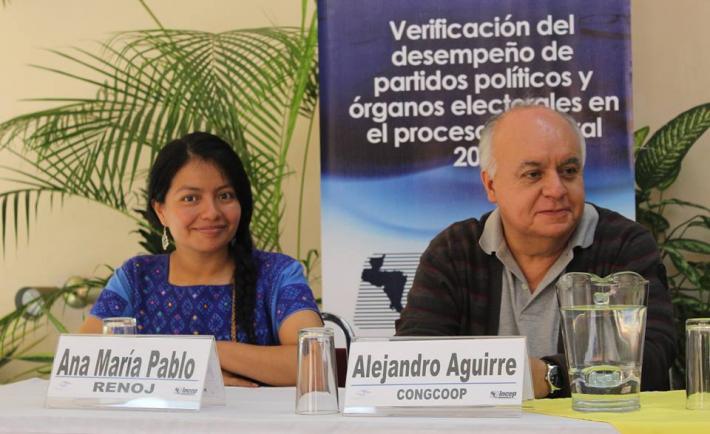
Anixh Ana María Pablo Tercero prepares to present election observation results at a press conference.
Large numbers of Guatemalan citizens are excluded from political life. Indigenous communities are among the most marginalized, as they face both institutional and cultural barriers in the country’s political system. Since the 2006 electoral reforms and during the subsequent three elections, Guatemala has seen important steps forward in terms of increased political participation; however, challenges remain in translating participation into meaningful representation.
Observation Network Unites to Improve the Transparency of Guatemalan Elections
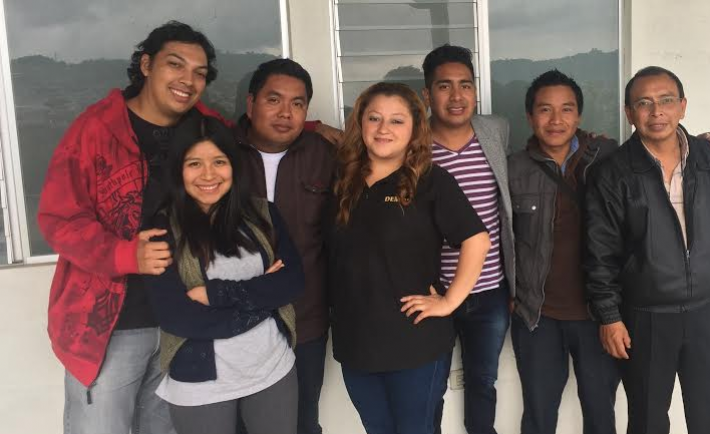
Members of the DEMOS network. Left to right: Jorge Barriento, Aracsala Chang, Orlando Cun, Yesica Hernandez, Fredy Sitavi, Jose Cuxil, and Ronald Baldomiro.
For Yesica Hernández, an observer from Quetzaltenango, playing an active role in political life in her country is a civic obligation. At just 24 years old, Yesica has worked with the Central American Institute for the Study of Social Democracy (DEMOS) for nearly five years and already observed two elections. She sees election observation as critical to involving citizens, especially youth, in politics and holding political parties and politicians accountable to the public.

